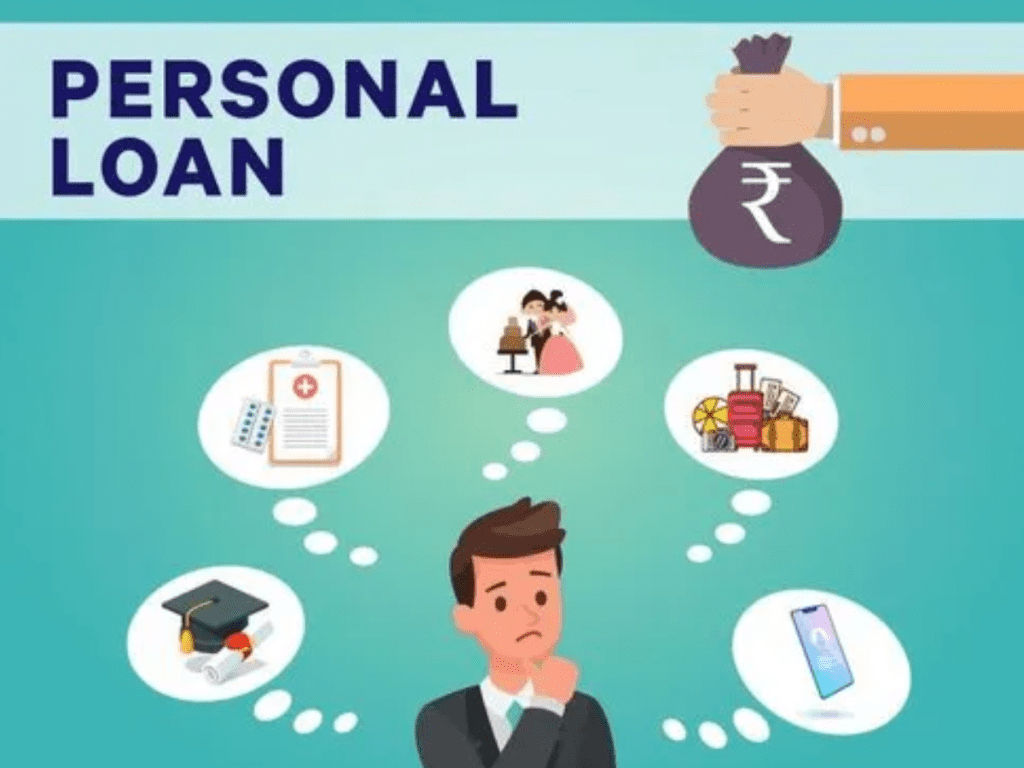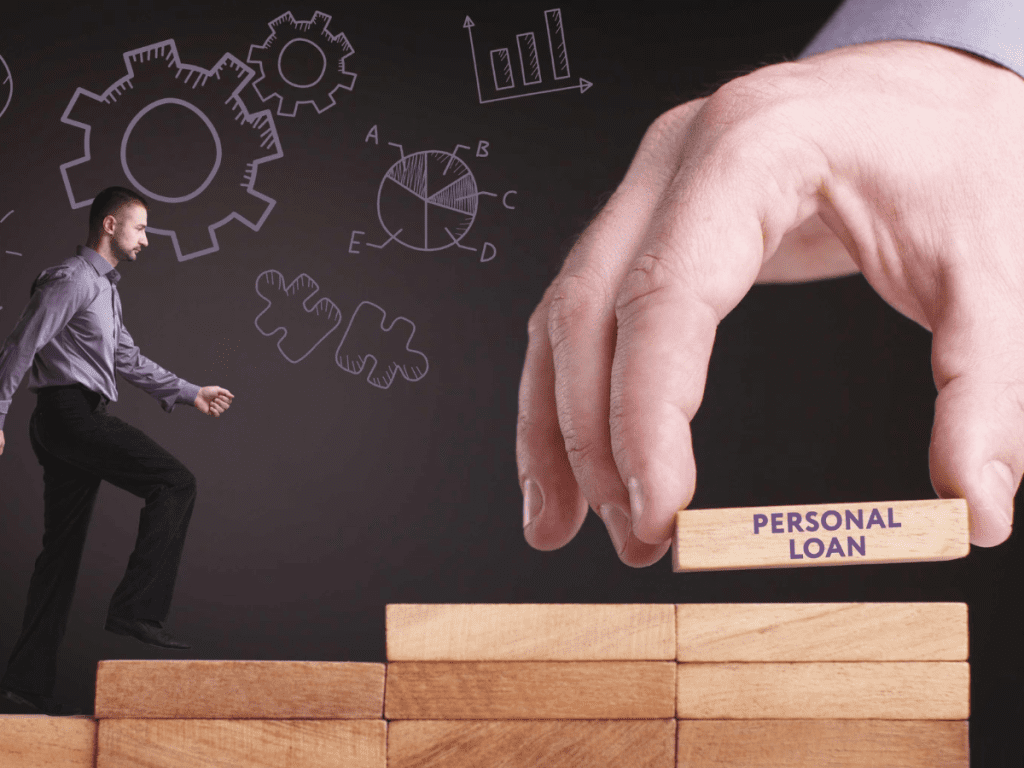A personal loan is often viewed as a solution for consolidating debt, funding emergencies, or making large purchases. However, it also has the potential to be a strategic tool for improving your credit score. Your credit score plays a crucial role in determining your financial credibility, influencing everything from loan approvals to interest rates. Using a personal loan responsibly can provide a pathway to enhance your creditworthiness and unlock better financial opportunities.
In this article, we will explore how personal loans can help build your credit score, the factors to consider, and best practices for leveraging them effectively.
Understanding Your Credit Score
Before delving into how personal loans can impact your credit score, it’s essential to understand the components of a credit score:
- Payment History (35%) – Reflects your ability to make timely payments.
- Credit Utilization (30%) – Measures the percentage of available credit you’re using.
- Length of Credit History (15%) – Considers the age of your credit accounts.
- Credit Mix (10%) – Evaluates the variety of credit accounts you have.
- New Credit (10%) – Assesses the number of new credit accounts you’ve opened.
A personal loan can positively influence these factors when managed correctly. Here’s how:
1. Establishing a Positive Payment History
Your payment history is the most significant factor in your credit score. By taking out a personal loan and consistently making on-time payments, you can demonstrate financial responsibility, which boosts your score.
- How It Helps: Each timely payment is reported to credit bureaus, adding positive entries to your credit report.
- Best Practice: Set up automatic payments to ensure you never miss a due date. Missing payments can have the opposite effect, significantly lowering your score.
2. Improving Credit Mix
Credit mix refers to the variety of credit accounts you manage, such as credit cards, mortgages, and installment loans. Having a diversified mix indicates that you can handle different types of credit responsibly.
- How It Helps: A personal loan adds an installment loan to your profile, balancing out revolving credit like credit cards.
- Best Practice: Use a personal loan strategically to diversify your credit mix without overextending yourself financially.
3. Lowering Credit Utilization Ratio
Your credit utilization ratio is the percentage of available credit you’re using on revolving accounts, such as credit cards. High utilization can negatively impact your score.
- How It Helps: Using a personal loan to pay off high-interest credit card balances reduces your utilization ratio, as personal loans are not factored into this calculation.
- Best Practice: Avoid accumulating new credit card debt after paying off balances with a personal loan to maintain a lower utilization rate.
4. Building Credit for New Borrowers
For individuals with a limited or no credit history, obtaining a personal loan can help establish a credit record. Lenders are more likely to approve personal loans for new borrowers compared to other types of credit.
- How It Helps: Regular payments build a track record of responsible credit use.
- Best Practice: Start with a small loan amount that you can comfortably repay to establish trust with creditors.
5. Enhancing Length of Credit History
While the immediate impact of a personal loan on your credit history length may be minimal, keeping the loan open and active over time can contribute positively to this factor.
- How It Helps: The longer you maintain accounts in good standing, the more it benefits your score.
- Best Practice: Resist the urge to close old credit accounts, as they contribute to the average age of your credit history.
Common Missteps to Avoid When Using Personal Loans to Build Credit
While personal loans offer opportunities to enhance your credit score, certain mistakes can undermine your efforts:
- Missing Payments: Late or missed payments can severely damage your credit score.
- Overborrowing: Taking on more debt than you can handle can lead to financial strain and default.
- Frequent Loan Applications: Applying for multiple loans within a short period can result in hard inquiries, temporarily lowering your score.
- Ignoring Loan Terms: Not fully understanding the terms, such as interest rates and fees, can lead to unexpected costs.
Best Practices for Using Personal Loans to Build Credit
To maximize the credit-building potential of a personal loan, consider the following strategies:
- Choose the Right Loan: Select a loan with manageable terms, a reasonable interest rate, and minimal fees.
- Create a Repayment Plan: Budget carefully to ensure timely payments without compromising other financial obligations.
- Monitor Your Credit Score: Regularly check your credit report to track progress and identify errors or discrepancies.
- Avoid Overextending: Use personal loans for specific purposes, such as debt consolidation or essential expenses, rather than discretionary spending.
Alternatives to Personal Loans for Building Credit
While personal loans are a viable option, there are other ways to build credit:
- Secured Credit Cards: Require a security deposit and function like a traditional credit card.
- Credit-Builder Loans: Specifically designed to help individuals establish or improve credit.
- Authorized User Status: Being added as an authorized user on someone else’s credit card account can help build credit history.
- Timely Bill Payments: Utility, rent, and phone payments can contribute to your credit report through services like Experian Boost.
Weighing the Pros and Cons of Personal Loans for Credit Building
Pros:
- Opportunity to establish or improve credit history.
- Potential to lower credit utilization ratio.
- Adds diversity to your credit mix.
Cons:
- Risk of missed payments leading to score damage.
- Fees and interest rates can add to the overall cost.
- Temptation to borrow more than necessary.
Real-Life Scenarios: How Personal Loans Impact Credit Scores
Scenario 1: Sarah had high credit card balances with a 70% utilization rate. She took out a personal loan to pay off the cards, reducing her utilization to 10%. Her credit score increased by 50 points within a few months, reflecting the positive change.
Scenario 2: Mark was new to credit and needed to build his credit history. He secured a $2,000 personal loan and made all payments on time. Over a year, his score increased by 80 points, making him eligible for a mortgage with a favorable rate.
Final Thoughts
A personal loan can be a powerful tool for building or improving your credit score, provided it is used responsibly. By understanding how it impacts key credit factors, avoiding common pitfalls, and adhering to best practices, you can leverage personal loans to achieve better financial health. Always approach borrowing with a clear purpose and a repayment strategy to ensure long-term benefits for your credit profile.

